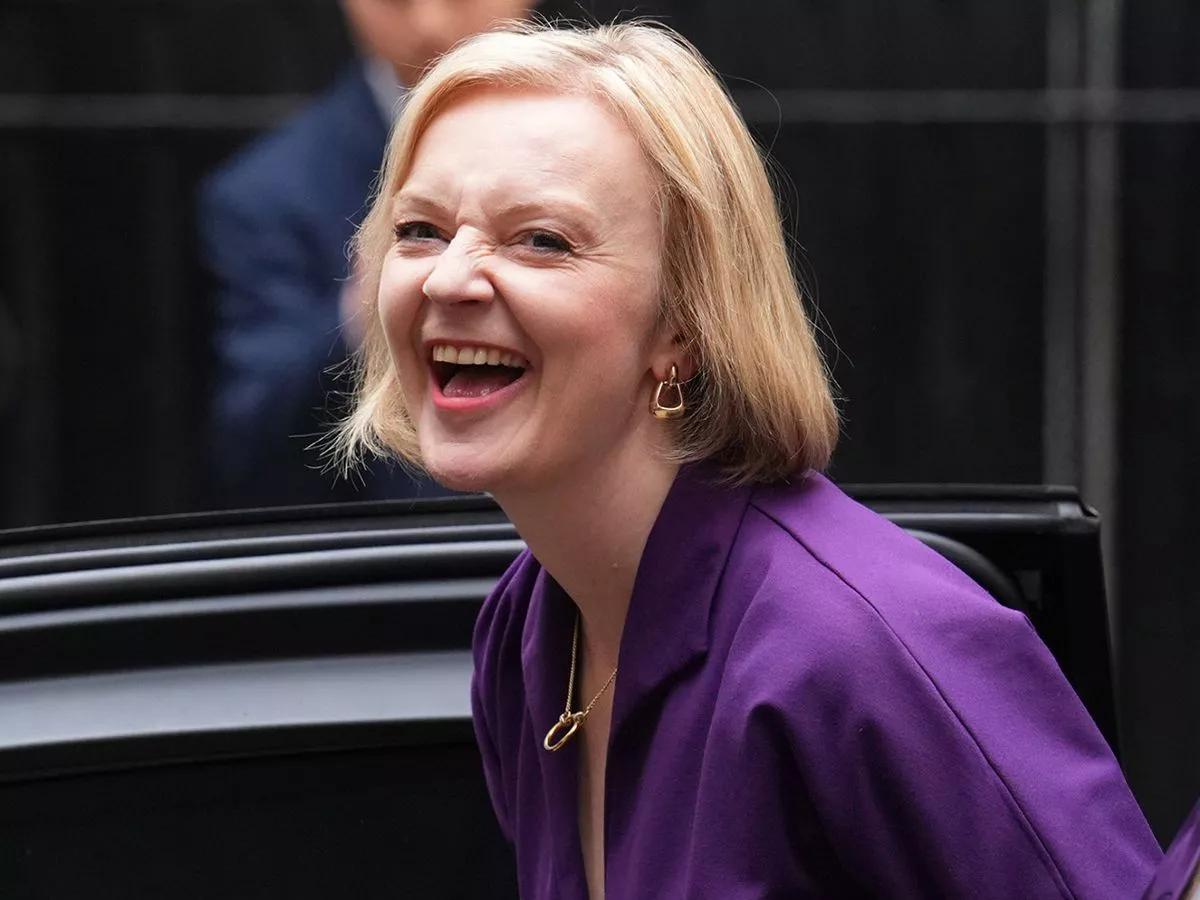Politics
Russell Findlay’s Controversial Endorsement of Liz Truss Raises Eyebrows in Scottish Politics

In a recent turn of events in Scottish politics, Russell Findlay, a prominent member of the Scottish Conservative Party, has found himself in hot water for his staunch support of Liz Truss, the former Prime Minister whose short tenure was marked by significant economic turmoil. In a fervent video shared on social media in August 2022, Findlay referred to Truss as an “authentic” leader, urging his fellow Conservatives to rally behind her candidacy.
Truss, who succeeded Boris Johnson after a leadership contest against Rishi Sunak, had her political career marred by a disastrous mini-budget that sent shockwaves through the UK economy. Her proposals for unfunded tax cuts were quickly abandoned following widespread backlash, leading to massive financial instability and exacerbating the ongoing cost of living crisis across the nation.
Findlay, the Scottish Tory justice spokesperson, was enthusiastic in his endorsement, claiming in a video recorded outside Paisley Abbey that Truss embodies the optimism needed to lead the UK. He expressed confidence in her ability to navigate the economic challenges facing families and position herself as a formidable opponent to politicians like Nicola Sturgeon and Keir Starmer.
In his video, Findlay declared, “In Liz we trust,” and articulated his belief in her vision for the UK. While holding what appeared to be his ballot paper, he praised Truss’s intentions to visit Paisley, a location significant to her childhood. This fervor has attracted scorn from his political rivals, who have seized the opportunity to question his judgment.
The Scottish National Party (SNP) did not hold back in their criticism. An SNP spokesperson asserted that Findlay’s unwavering support for Truss illustrated a concerning lack of judgment and values, arguing that it reflects poorly on the political landscape of Scotland. They contended that no matter who takes the helm of the Scottish Tories next, the party will be forever linked to the austerity measures that have plagued public services.
SNP MSP Kenneth Gibson lambasted Findlay’s endorsement, stating, “For Mr. Findlay to have placed his trust in her speaks volumes about his judgement and values.” He underscored the adverse effects of Truss’s policies, which he claimed resulted in escalating mortgage costs and economic disarray that continues to burden Scottish households.
Scottish Labour Deputy Leader Jackie Baillie also weighed in, characterizing the Scottish Conservatives as being in a downward spiral. She remarked that Findlay’s backing of Truss reveals a deeper truth about his political principles and the state of the party itself. Baillie emphasized that while the Tories bicker over leadership positions, her party remains committed to addressing the actual needs of the Scottish populace.
Findlay’s political journey began as a journalist before transitioning into an elected role as a Tory MSP in 2021. The internal rift among Scottish Tories was further deepened by the support many members gave to Truss during her leadership campaign. Douglas Lumsden, a fellow Conservative MSP and Findlay’s potential running mate, echoed similar sentiments, admiring Truss’s resolve to reform her policies after acknowledging her earlier missteps.
Lumsden proclaimed that Truss’s willingness to accept responsibility and adapt her strategies is an admirable trait for any politician. He branded critiques of her leadership as “ridiculous” just a week before she stepped down from her role, after already facing significant pressure amid a deteriorating economic situation.
As the Scottish Conservative Party prepares for an eventual leadership change, the ramifications of Findlay’s endorsement of Truss may haunt his political aspirations. Despite being viewed as a frontrunner to succeed Douglas Ross, who announced his intention to retire amid controversies, Findlay’s allegiance to Truss continues to surface in discussions among political analysts and rivals alike.
As the political landscape evolves, many are left questioning the path forward for the Scottish Tories. With rising discontent regarding the economy, combined with ongoing issues related to austerity and party leadership, the responses from Findlay and others will be closely monitored by both supporters and critics.
The endorsement has also ignited discussions about the broader implications of party solidarity and the criticism that dissenters within the Conservative Party face. Moving forward, Findlay’s choices and the party’s direction could define their standing in Scottish politics in the years to come.
As the leadership race unfolds, only time will tell how these endorsements will shape the actions of the future Conservative leadership and its ability to overcome the challenges that lie ahead.












